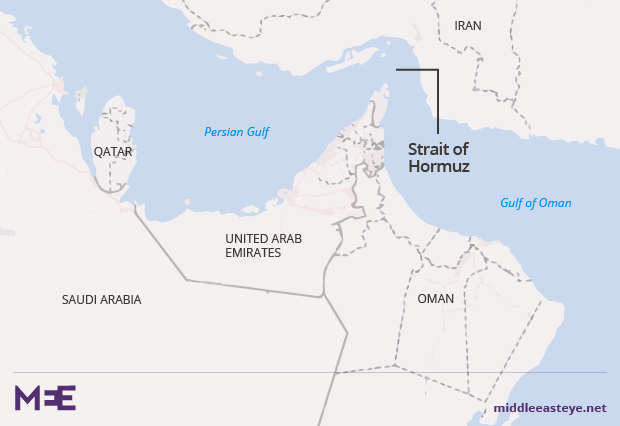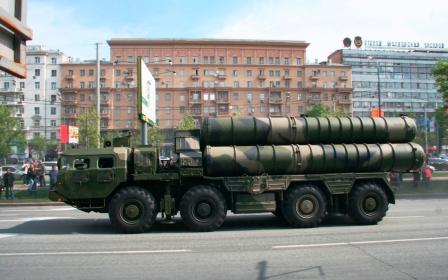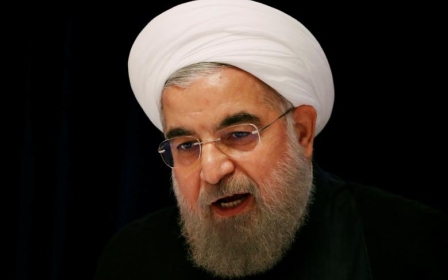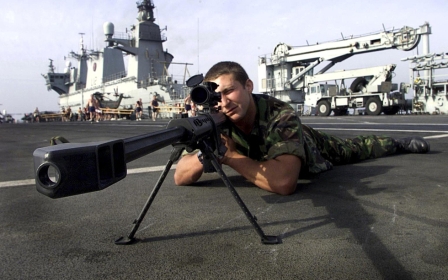Iranian ships force US and UK vessels to change course in Gulf
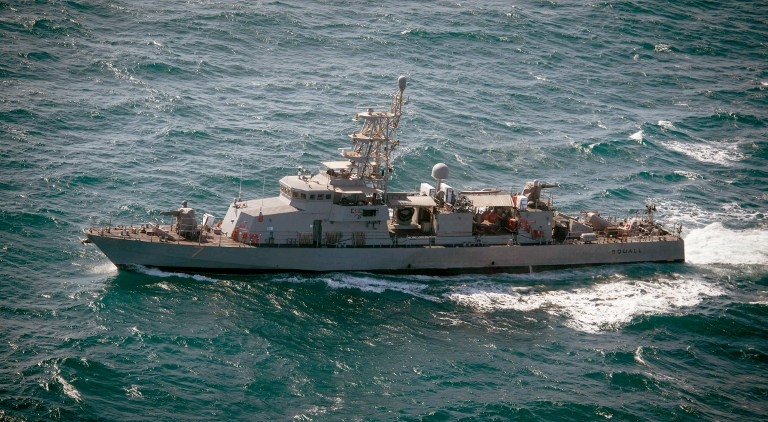
A US Navy ship and three British Royal Navy boats were forced to change course when several Iranian fast-attack vessels approached them in the Strait of Hormuz on Saturday, a US official said on Monday.
The Islamic Revolutionary Guard boats came within 600m of the US ship, Invincible, and stopped, the official told Reuters on condition of anonymity.
The US official told Reuters that the Invincible tried to communicate with the Iranians over radio, but there was no response and the interaction was “unsafe and unprofessional”.
Tensions between the US and Iran have increased since the election of Donald Trump, whose administration put Iran "on notice" over its recent ballistic missile tests.
The IRGC did not comment on the latest episode, but Iran mantains that under international law it has the right to protect security in the Strait. For this reason, IRGC have ordered all foreign ships to communicate in Persian.
It is not the first time that Iranian vessels have approached a US Navy ship. In January a US destroyer fired three warning shots at four Iranian fast-attack boats after they disregarded repeated requests to slow down and closed in at high speed on the American vessel.
A year earlier the IRGC seized two US Navy boats in the waterway and detained all on board on Iran's Farsi Island in the Gulf. The US Navy personnel were later released after extensive diplomatic consultations.
"Well I don't know how much of a pattern it is, we actually had seen quite an improvement in Iran's behaviour until recently," Pentagon spokesman Captain Jeff Davis told reporters.
Davis said that dangerous interactions were a matter of concern because they could lead to a "miscalculation or an accidental provocation".
The three ships from the British Royal Navy were accompanying the US Invincible, a tracking ship equipped with antennas and electronics to support the launching and tracking of missiles and rockets.
In February Iran tested medium-range ballistic missiles, which the US said violated a UN Security Council resolution. "Iran is playing with fire - they don't appreciate how 'kind' President Obama was to them. Not me!" President Trump tweeted after the missile test was first reported.
At a campaign rally in September, then presidential candidate Trump said that any Iranian vessels that harassed the US Navy in the Strait of Hormuz should have been “shot out of the water”.
After Washington and Tehran reached a deal on Iran’s nuclear ambitions in 2015 tensions between them eased. But the election of Trump and differences over Iran’s ballistic missile programme and conflicts in Syria and Yemen have renewed animosity between the two countries.
New MEE newsletter: Jerusalem Dispatch
Sign up to get the latest insights and analysis on Israel-Palestine, alongside Turkey Unpacked and other MEE newsletters
Middle East Eye delivers independent and unrivalled coverage and analysis of the Middle East, North Africa and beyond. To learn more about republishing this content and the associated fees, please fill out this form. More about MEE can be found here.


